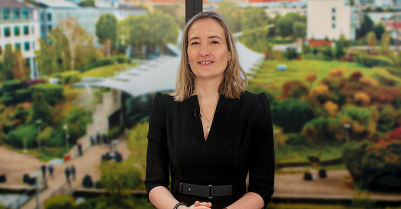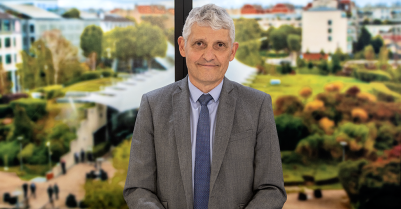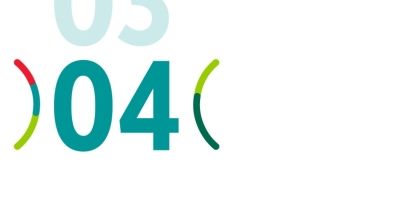-
View article
 #Financial publications
#Financial publicationsInterview with Clotilde L’Angevin - Significant full-year earnings and a transitional fourth quarter marked by the launch of the new MTP
2026/02/04 -
View article
 #Financial publications
#Financial publicationsInterview with Olivier Gavalda - Results that reflect teams’ commitment to serving our customers and society
2026/02/04 -
View article
 #Economy
#EconomySouth Korea: a year after the political crisis, markets are buying the promise of stability
2025/12/17
- 2008/03/26
- 3 min
- 0
-
0
Paris, 26 March 2008
Silca will be working with the charity Emmaus on this project to organise procedures for handing IT waste.
René Carron, Chairman of Crédit Agricole Group, and Christophe Deltombe, Chairman of Emmaus, signed a partnership agreement on 26 March 2008 in Chambray les Tours, committing Crédit Agricole Group to a new corporate citizenship project that will :
- process all obsolete computers in accordance with the strictest environmental criteria while ensuring that data is securely removed;
- support the “Ateliers du Bocage”, an Emmaus unit that recycles and sells computers inexpensively to low-income customers.
Since October 2007, Crédit Agricole Group's decommissioned workstations have undergone a two-stage recycling process:
First, non-working or obsolete computers are sent to CEIN (Centre des Editions Internes National) in Chambray les Tours, where they are sorted. CEIN employees erase the hard disks using Blancco, a software application approved by Crédit Agricole Group's security departments.
In the second stage, the computers are sent to the Ateliers du Bocage at Mauléon in western France, where useless machines are destroyed and any waste is sorted according to current regulations. Spare parts or serviceable computers are sold off cheaply through Emmaus France.
With this project, Silca has established a process that is in line with Crédit Agricole Group's values. “Our aim is to manage our end-of-life equipment and improve security in a socially useful and environmentally friendly way,” explains François Meyer, Head of Sustainable Development at Silca.
Silca's current processing capacity is 10,000 computers per year, and the market cost of recycling is 37.5 euros per computer. “I am delighted with this project, which accommodates both the social and environmental aspects of IT recycling. Moreover, I'm certain it will interest other subsidiaries within the Group,” says Elias Abou Mansour, Chief Executive Officer of Silca.
This project is part of Crédit Agricole Group's long-standing commitment to sustainable development.
In March 2003, Crédit Agricole signed the ten principles underlying the United Nations Global Compact on human rights, labour standards, the environment and the fight against corruption.
Since then, the Crédit Agricole Group has regularly stepped up its actions in these areas. For instance, it took part in a recent environmental roundtable with representatives of the French government and civil society for the purpose of establishing a new roadmap for environmental protection and sustainable development.
On 21 January, Crédit Agricole Group signed the Diversity Charter, showing its commitment to combat all forms of discrimination in recruitment.
More recently, Crédit Agricole launched the Grameen Crédit Agricole Microfinance Foundation in partnership with Grameen Bank and 2006 Nobel Peace Prize winner Muhammad Yunus. Crédit Agricole Group contributed €50 million to this initiative to combat world poverty.
As the leading agricultural bank, Crédit Agricole also supports projects that favour agricultural practices that have a positive environmental impact while preserving farm profitability.
Our commitments have been acknowledged worldwide, and Crédit Agricole was awarded the Global Bank of the Year distinction for 2007 by “The Banker” magazine for its socially and environmentally responsible initiatives.
To coincide with the Sustainable Development Week from 1 to 7 April 2008, Crédit Agricole will launch a new website and organise a number of in-house events to increase awareness among Group employees about “eco-citizen” activities both at work and at home.
The WEEE Directive
Directive 2002/96/EC on waste electrical and electronic equipment (WEEE), which came into force on 12 August 2005, requires companies to find their own solutions for destroying obsolete or unwanted hardware. This is important because the chemicals used in the manufacture of computers, including heavy metals and other toxic substances, are highly polluting. The machines must therefore either be given away or recycled. In both cases, a record of the disposal method must be kept.
An office computer contains on average 1.7 kilos of lead, 50 grams of arsenic, chromium and cobalt, and 6.35 kilos of non-degradable plastic.
With the system put in place by Silca, 97 per cent of the waste from an office computer will be processed. Obsolescent machines will be dismantled and sold off by weight to specialised companies.



